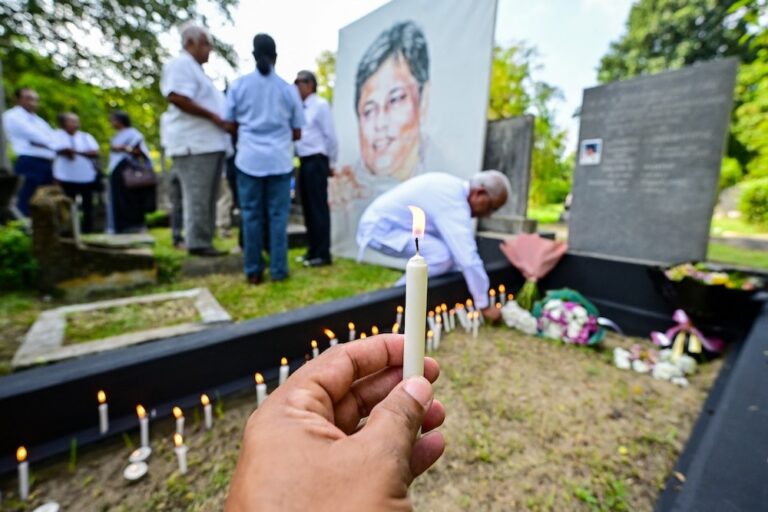In preparing the special report, CPJ spoke with journalists, diplomats, government officials, and international media support workers in Colombo and Jaffna.
(CPJ/IFEX) – New York, May 19, 2010 – One year after Sri Lanka declared victory in its bloody 26-year war with Tamil secessionists, journalists remain under attack, with killings, assaults, and threats going unprosecuted by the government, the Committee to Protect Journalists has found in a new report.
At least nine Sri Lankan journalists have been murdered in direct relation to their work since 2004, but the government of President Mahinda Rajapaksa has not obtained a single conviction in any of the cases. Threats have become so pervasive that 25 journalists have fled the country in fear for their safety.
In preparing their special report, CPJ Deputy Director Robert Mahoney and Asia Program Coordinator Bob Dietz spoke with dozens of journalists, diplomats, government officials, and international media support workers in the capital, Colombo, and in Jaffna, the heart of the struggle between the government and Tamil forces.
They found a toxic climate for free expression in one of Asia’s oldest democracies, despite the government’s May 2009 declaration of victory over Tamil secessionists and 2010 elections that returned Rajapaksa to power.
CPJ also reports on the government’s ongoing failure to investigate and prosecute three brutal anti-press assaults from January 2009. The attacks, which caught the world’s attention, included the bombing of a television control room and two brazen daytime assaults that left one newspaper editor dead and another in exile.
In its recommendations, CPJ calls on the Sri Lankan government to denounce and prosecute attacks on the press, to repeal repressive laws, and to guarantee the safe return of exiled journalists. It calls for pressure to be exerted by the international community, particularly countries such as Japan and India, which have shied from pressing Sri Lanka for reforms. And it calls on the European Union to hold fast to its promise to withdraw preferential tariff benefits, known as GSP+, to Sri Lanka if the government fails to take demonstrable steps to improve the press freedom climate.


